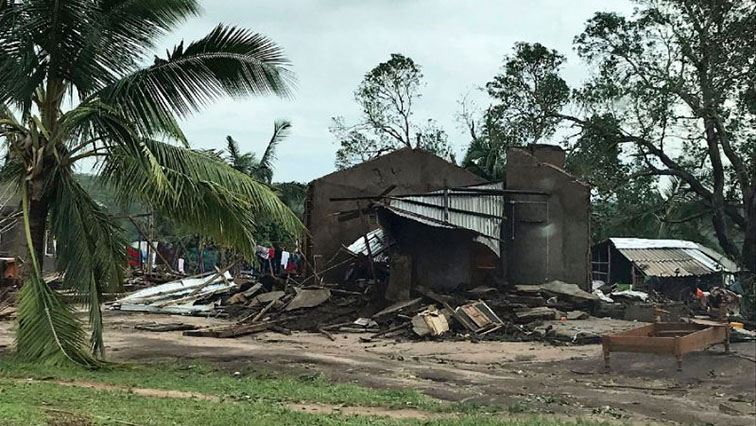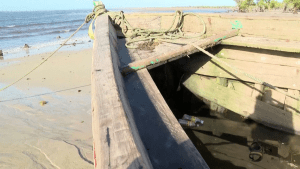Cyclone Kenneth killed at least one person and left a trail of destruction in northern Mozambique, destroying houses, ripping up trees and knocking out power, authorities said on Friday.
The cyclone brought storm surges and wind gusts of up to 280 km/h when it made landfall on Thursday evening, after killing three people in the island nation of Comoros.
It was the most powerful storm on record to hit Mozambique’s northern coast and came just six weeks after Cyclone Idai battered the impoverished nation, causing devastating floods and killing more than 1 000 people across a swathe of southern Africa.
The World Food Programme warned that Kenneth could dump as much as 600 millimetres of rain on the region over the next 10 days – twice that brought by Cyclone Idai.
One woman in the port town of Pemba died after being hit by a falling tree, the Emergency Operations Committee for Cabo Delgado (COE) said in a statement, while another person was injured.
In rural areas outside Pemba, many homes are made of mud. In the main town on the island of Ibo, 90% of the houses were destroyed, officials said. Around 15 000 people were out in the open or in “overcrowded” shelters and there was a need for tents, food and water, they said.
There were also reports of a large number of homes and some infrastructure destroyed in Macomia district, a mainland district adjacent to Ibo.
A local group, the Friends of Pemba Association, had earlier reported that they could not reach people in Muidumbe, a district further inland. Earlier in the week the government expressed concern that five rivers and coastal waterways could burst their banks.
Mark Lowcock, United Nations under-secretary-general for humanitarian affairs, warned the storm could require another major humanitarian operation in Mozambique.
“Cyclone Kenneth marks the first time two cyclones have made landfall in Mozambique during the same season, further stressing the government’s limited resources,” he said.
Antonio Carabante, relief delegate with the International Federation of Red Cross and Red Crescent Societies (IFRC),highlighted the risks from expected heavy rainfall.
“While attention is often given to wind speed, we know from experience that it is rainfall – and subsequent flooding and landslides – that can be even more dangerous from a humanitarian perspective,” he said.
The IFRC said it had teams in Mozambique providing first aid and preparing for potential flooding. Mozambique’s National Institute of Disaster Management (INGC) also has teams out assessing the impact.






